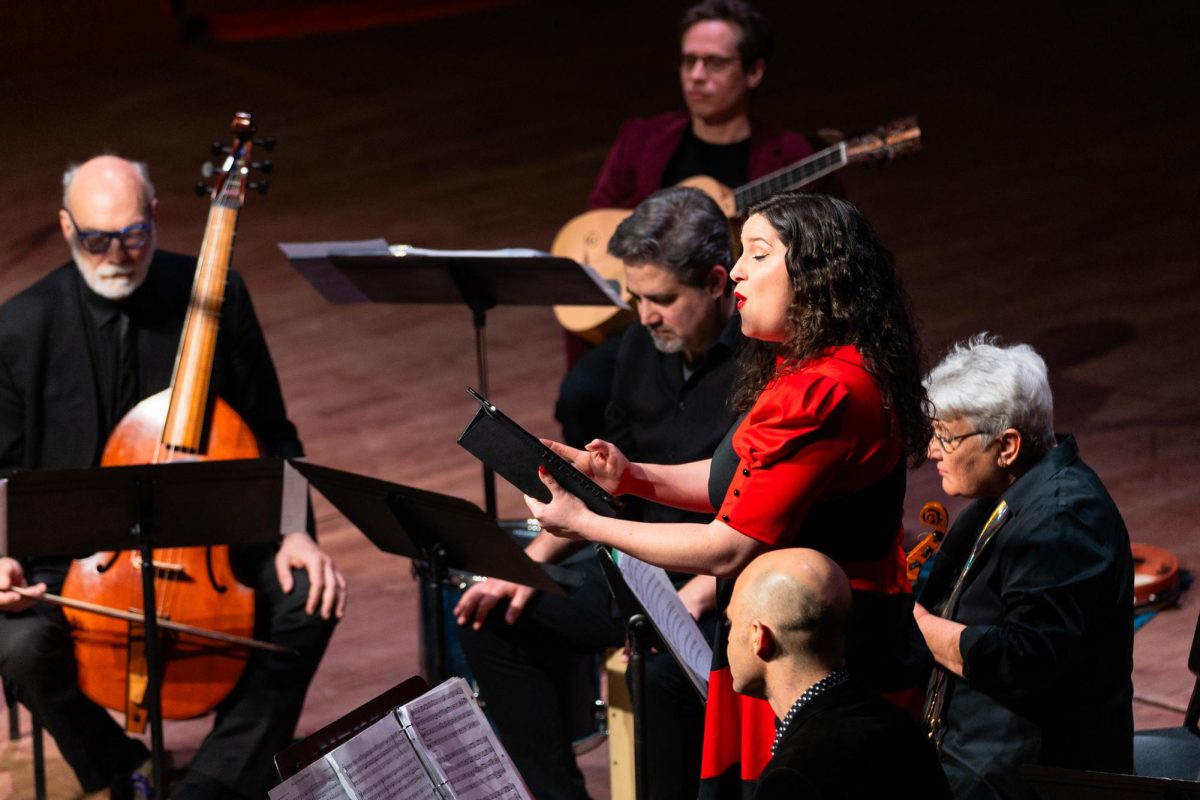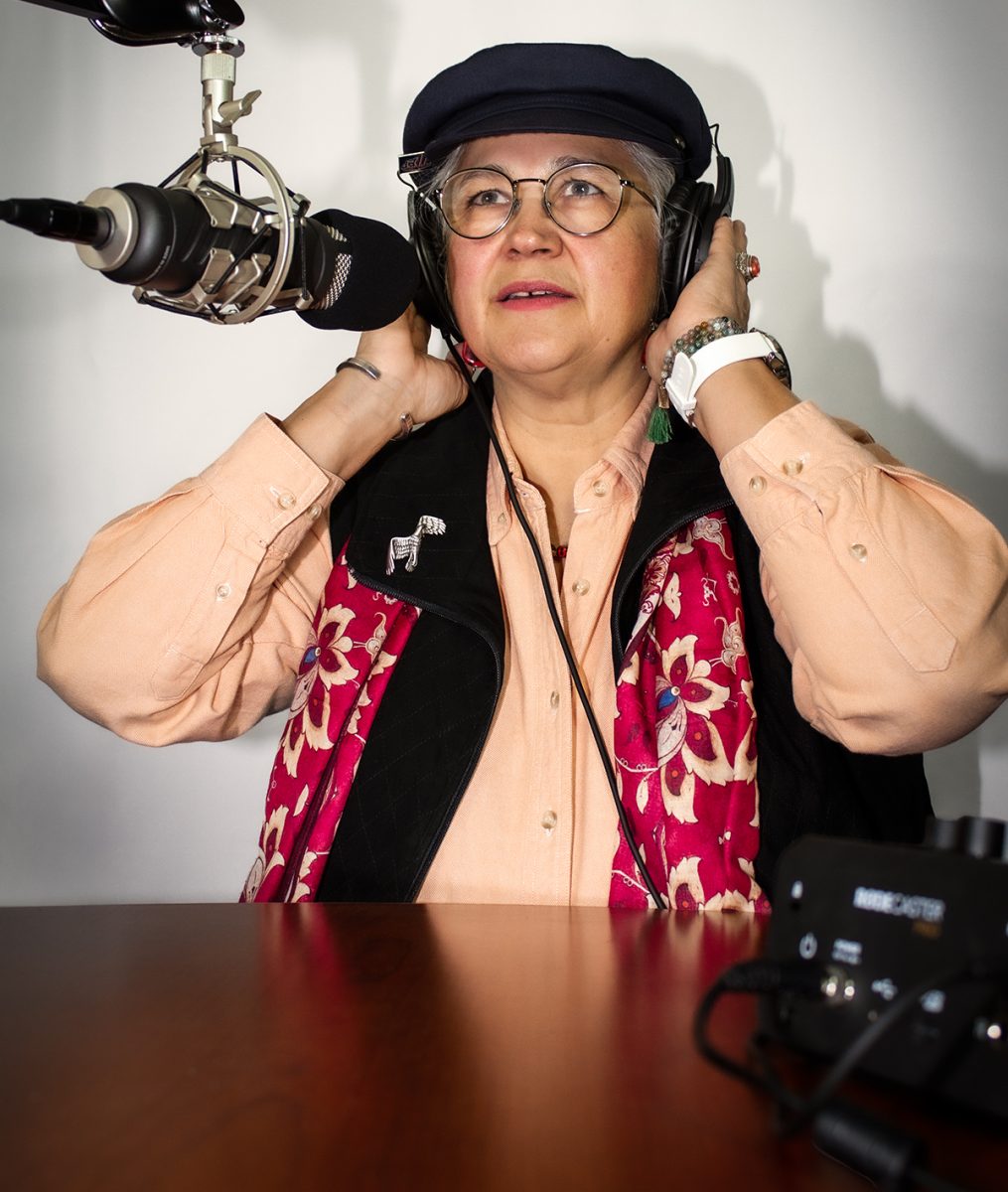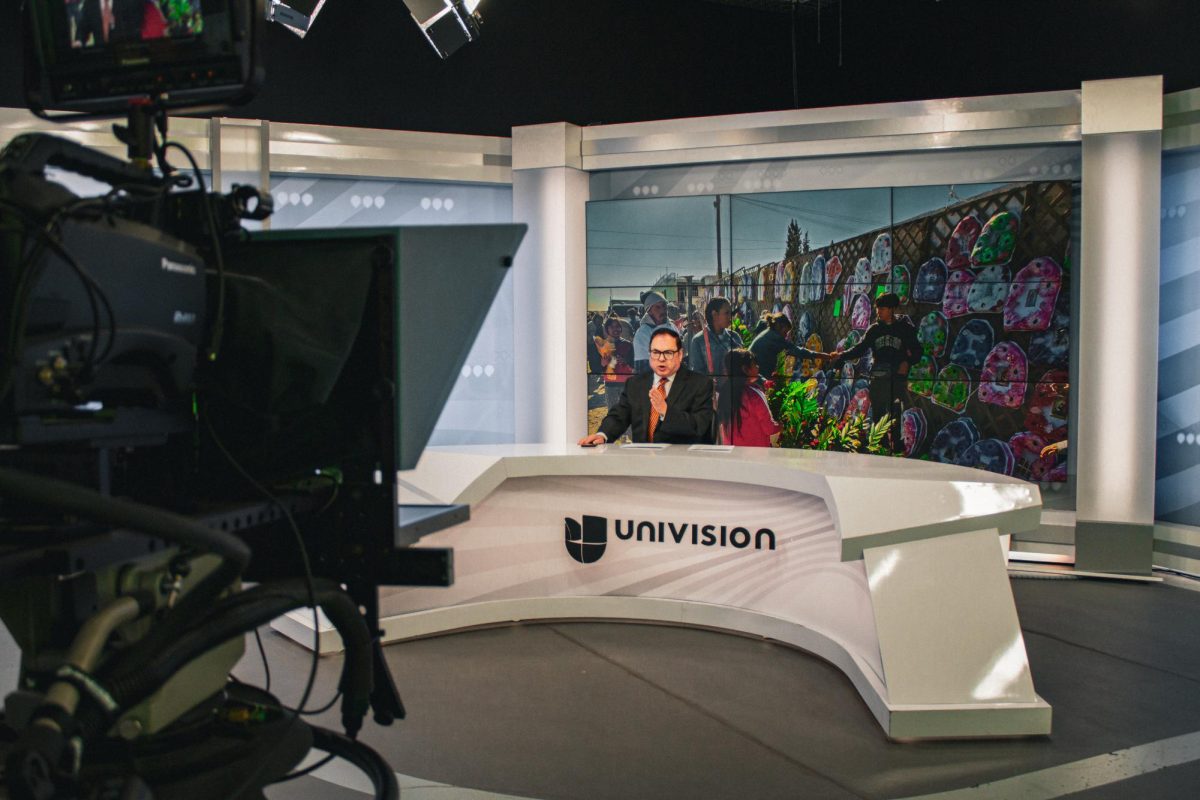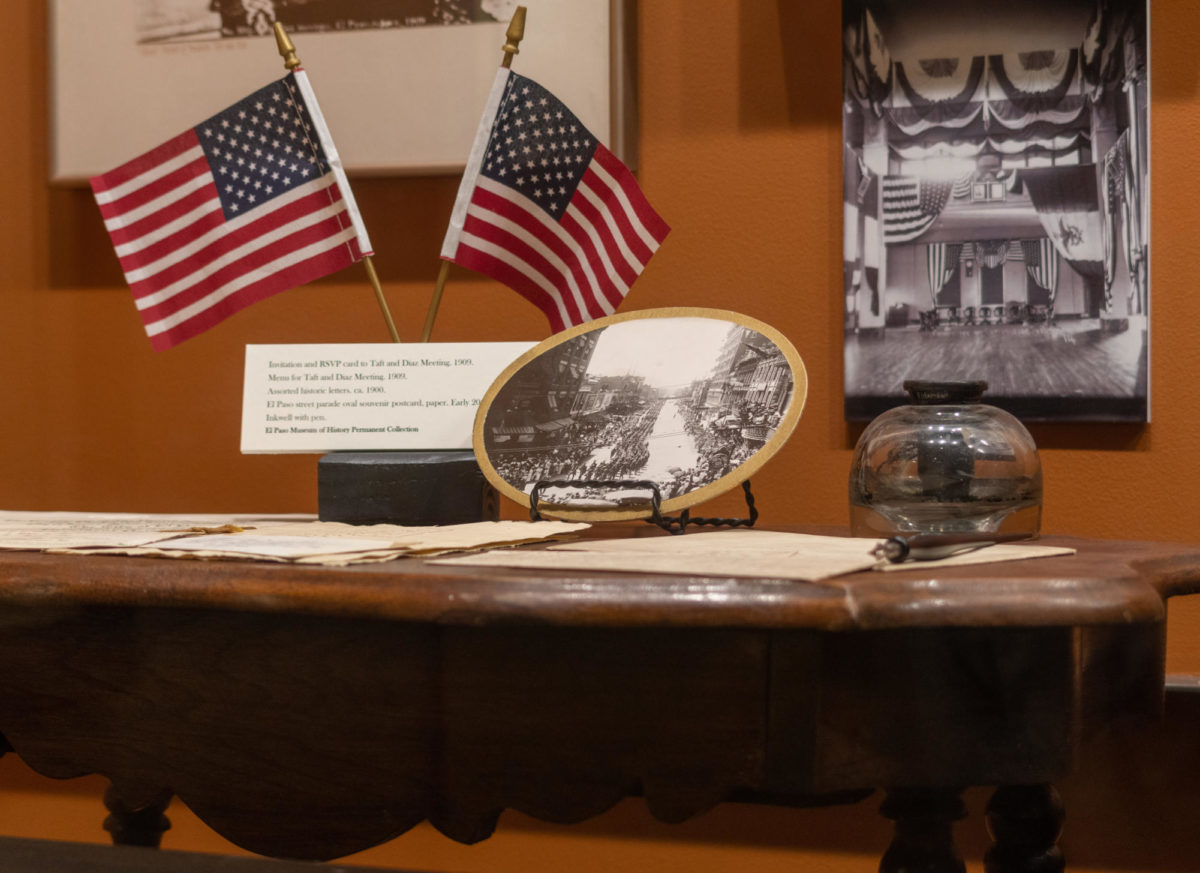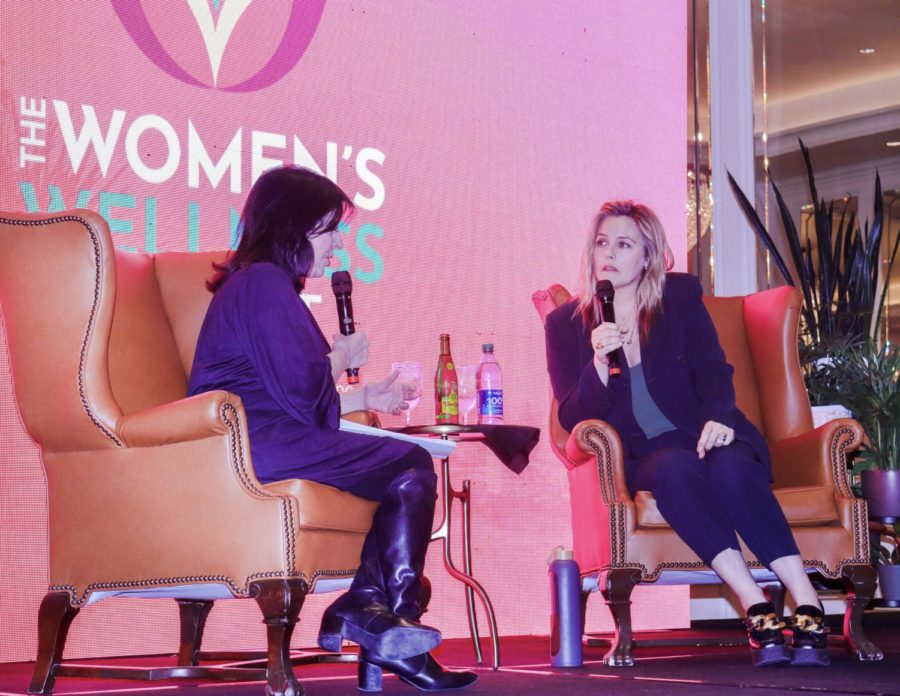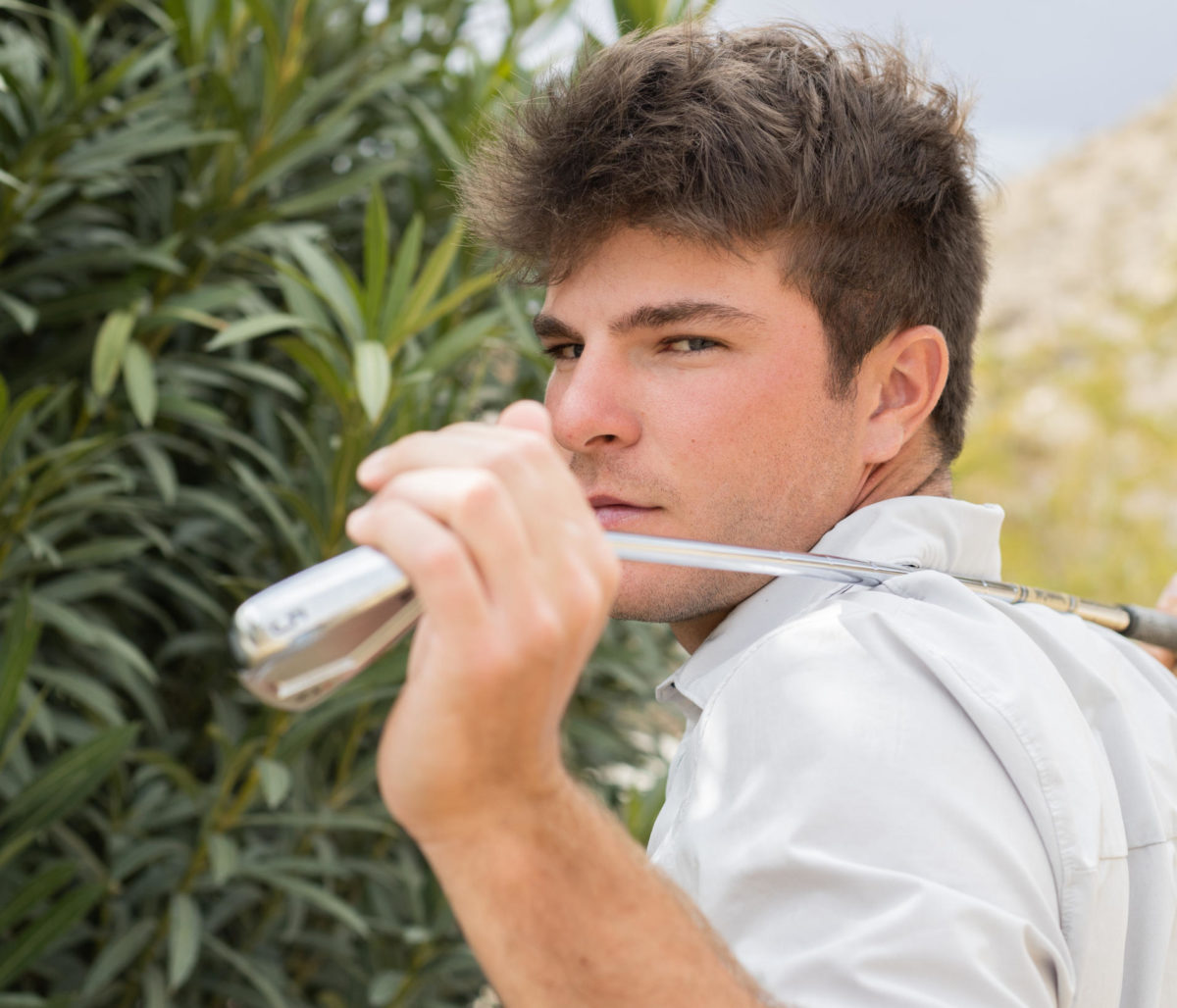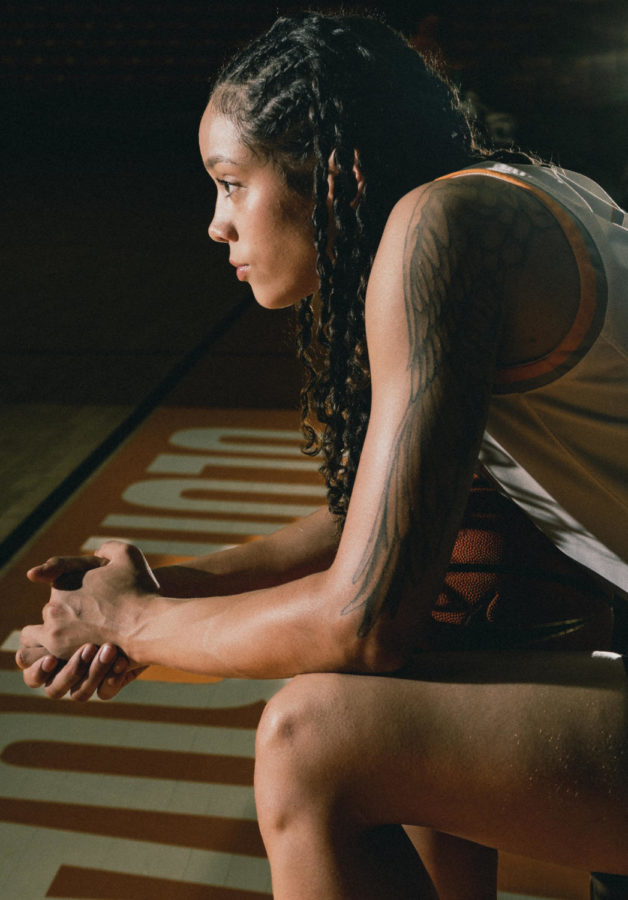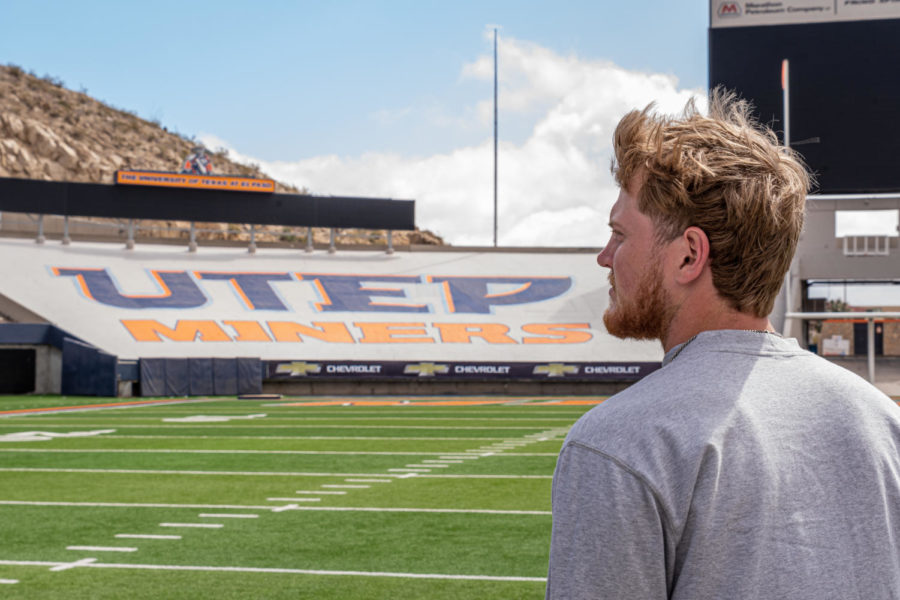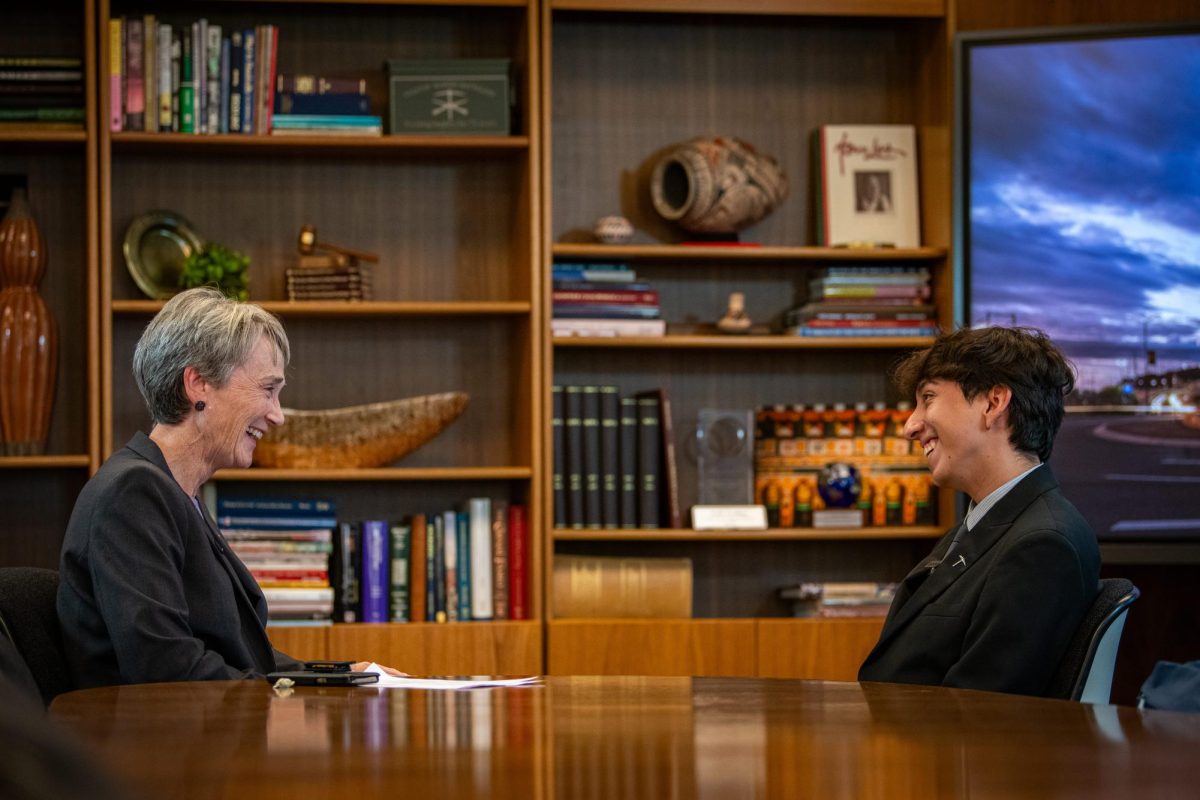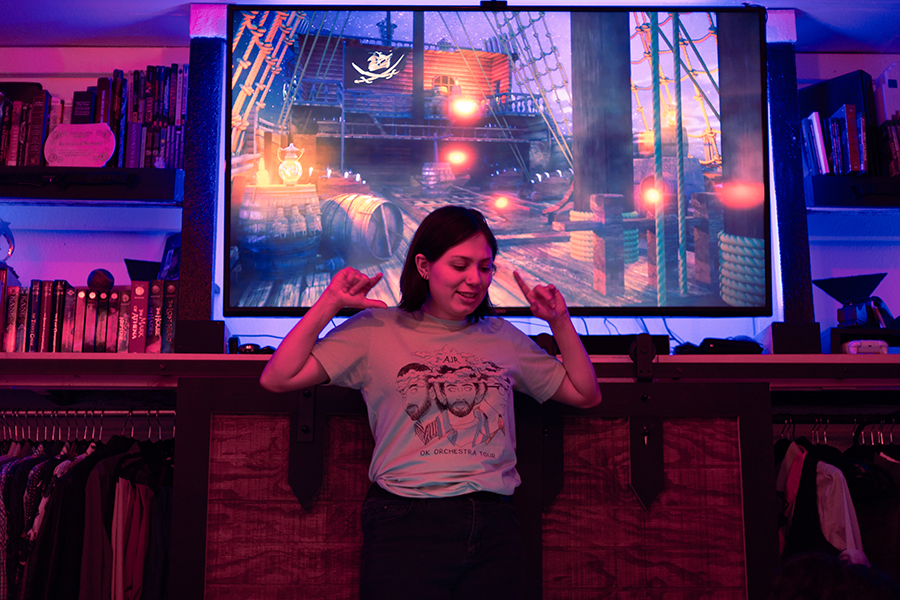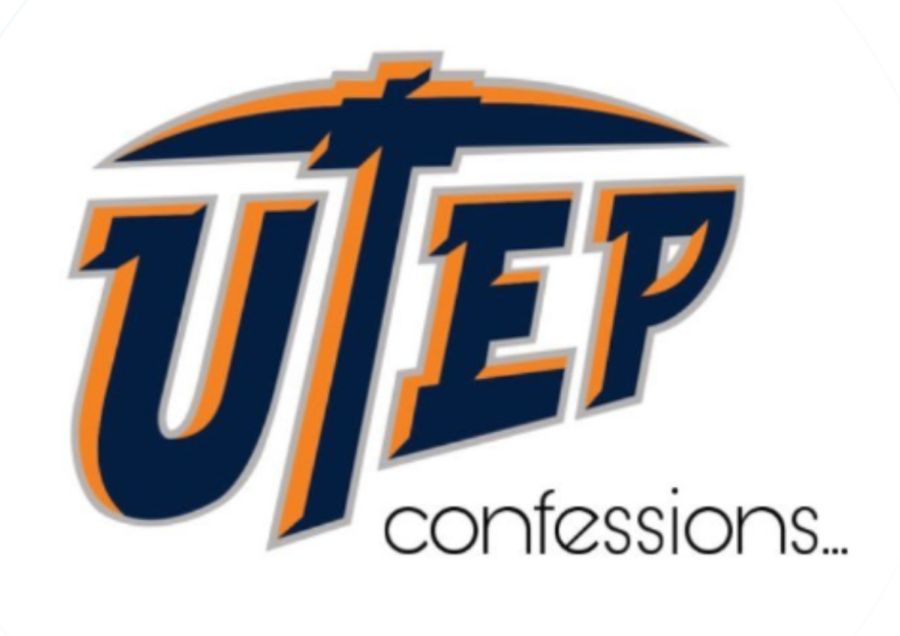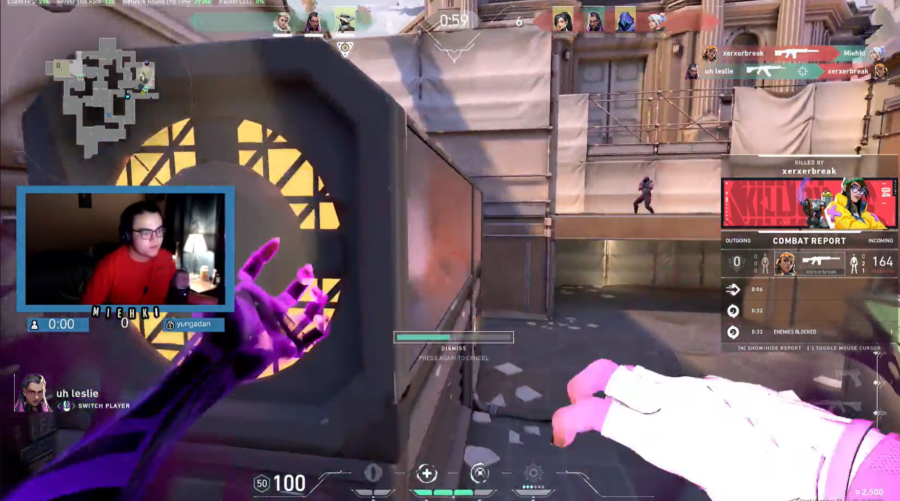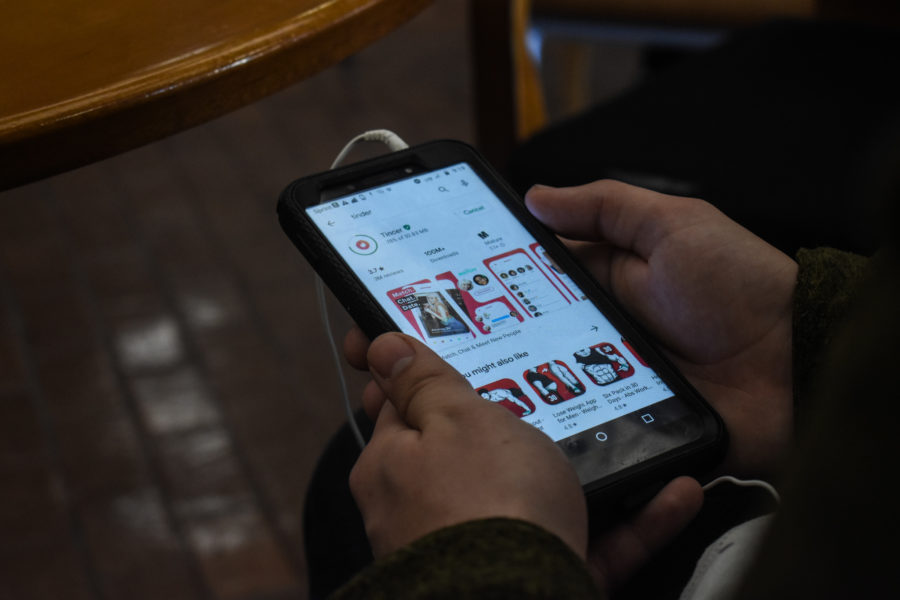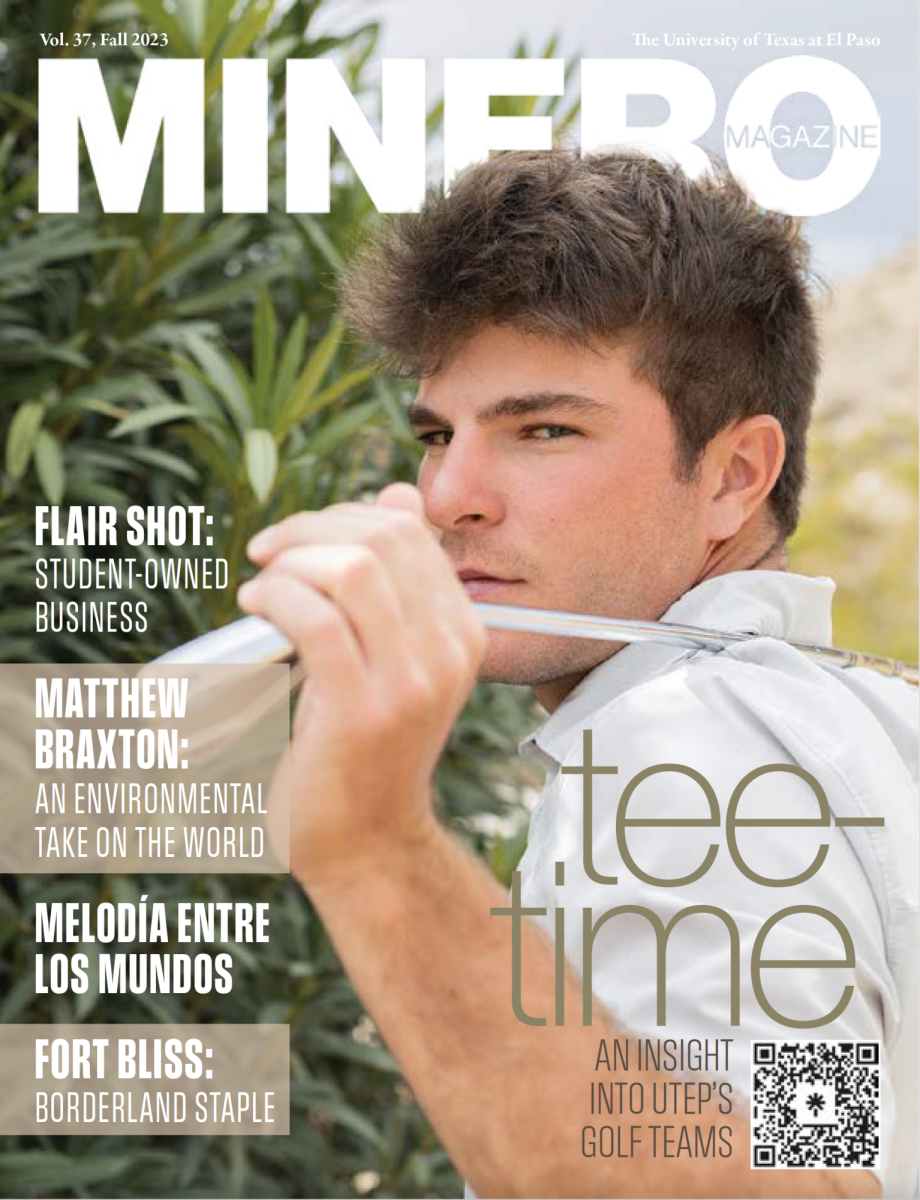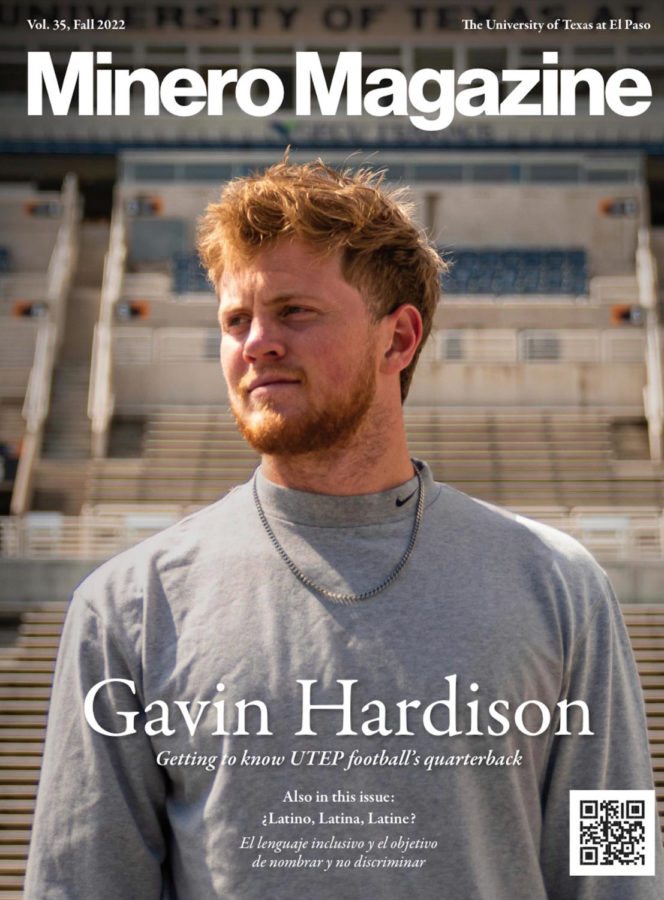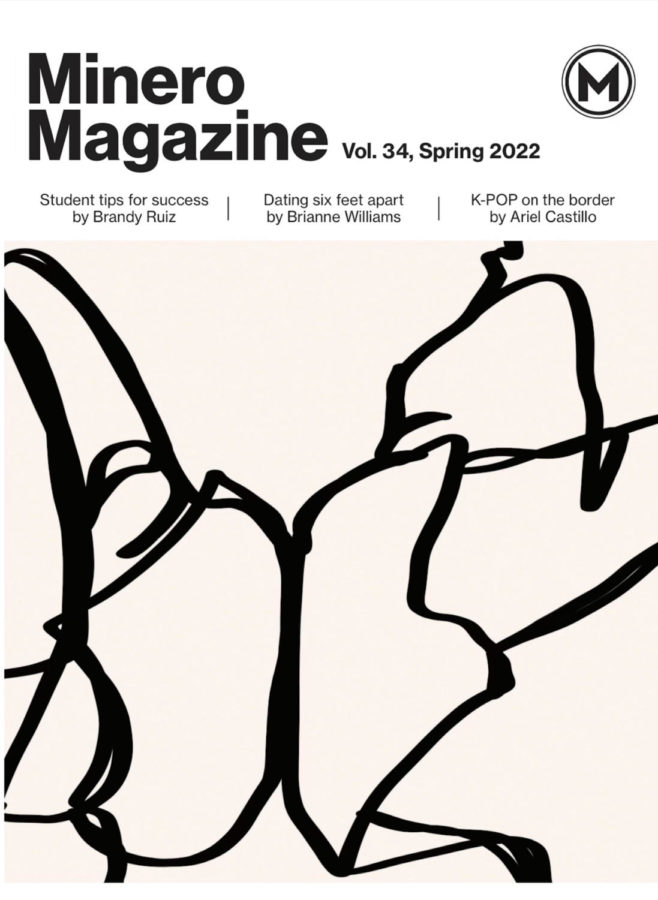Living the Dream – Going from Student-Athlete to Professional Athlete
Elenie Gonzalez
There are several student-athletes at the University of Texas at El Paso who have gone on to the next level of their athletic career, including five in 2017. Two of those athletes are playing in the NFL, one of them is playing professional basketball overseas, and the rest are track and field stars running professionally for Nike and Adidas. Two of these five athletes are female, which brings up the question—is it more difficult for a female to break into a professional sports career than it is for her male counterpart?
There are five men’s teams in UTEP Athletics compared to the nine women’s teams, but there are significantly more male student-athletes competing than women. With a total of 265 student-athletes at the university, 154 are men and 111 are women.
Lily Downs, a junior who is on the women’s golf team, moved to El Paso from Kirklevington, Yarm, U.K., hoping the move would better her golfing skills. Having hopes of becoming a professional golfer one day, she knew that her chances would improve if she continued playing competitively in the United States.
“I was so relieved when I was recruited to UTEP. Universities back home are more centered on academics and if I went to university there, I 100 percent would have quit golf,” Lily says. “Once I was recruited, I was like ‘yes, I can do this. I can play golf every single day, I can get better and I can still get my education.’”
Lily has been playing golf since she was 10 years old. After her father took her to a driving range for a weekend family outing, she was instantly hooked after discovering she could hit the ball quite well. She received some lessons as she continued to develop her talent for the sport. Her ambition to play grew and she set her goals on becoming a professional golfer.
“When I was younger, I really badly wanted to be a professional,” Lily says. “As I got older, reality sort of set in on how much you have to work for that to happen. I definitely still want to it now, but I have a lot of work to do before I get there.”
Tamara Seda and Jakeira Ford, both players for the women’s basketball team, also aspire to go to the next level.
Tamara, the 6-foot-4 forward from Maputo, Mozambique, has become a dominant force for the Miners. She ranked second in rebounding in Conference USA during the 2016-2017 season. As the only senior on the team, she is thinking about the future as she hopes to break into the professional leagues.
Kevin Baker, the new head coach of the team, says she is one of his players who has the talent to go pro. “We have several people on our team right now that are certainly good enough to play at the next level, and ‘T’ is one of them,” Baker says. “She can play professional basketball somewhere.”
Tamara hopes to play overseas if the opportunity allows her to make it there.
“Since it’s my last year, I want to go pro. Not everyone gets there because they didn’t get the opportunity, but I definitely want to play in Europe if I can.”
Baker has the confidence that more of his players can play at a professional level.
“We’ve got some younger players, that in a couple of years, if they develop, they’ll be able to have their opportunities to play professional basketball as well,” he says.
Jakeira, a sophomore on the team, has dreamed about going pro since high school. She hopes to one day play in the WNBA like her role model Candace Parker of the Los Angeles Sparks.
“I can say it’s a dream, playing at least in the WNBA or overseas,” Jakeira says. “I’ve thought about it since I was in like the ninth grade.”
Blessing Okagbare, a former sprinter and long jumper on the UTEP’s track and field team, has been running professionally for Nike since she graduated from UTEP in 2010. She says the opportunities to go pro are equal for both men and women.
“It just depends on the person and their priorities. A lot of women excel and are even more successful and are taken more seriously sometimes than men, even if we get paid less,” Blessing says. “As a woman, I don’t feel any pressure and I don’t think (of) myself as less than a man. I feel like we all have equal opportunities, it just depends on the individuals and how you want to use those opportunities.”
Blessing has competed in the last three Olympic games. She took home a bronze medal in the long jump in the 2008 Summer Olympics in Beijing at just 19 years old. Although she didn’t win a medal in the 2012 London Olympics and the 2016 Rio Olympics, she continues to run international competitions, representing her country, Nigeria.
Despite her success, she acknowledges an important issue. Female athletes often face measurable pay disparities. According to Summit Hoops, a database for WNBA salaries, Sylvia Fowles, who was named the 2017 Most Valuable Player by the WNBA, made $109,000 that same year, making her one of the highest paid players in the league. The data by Summit Hoops also shows that the salaries for WNBA players in 2017 were as low as $40,439 for a rookie player.
The salary seems striking when compared to players from the NBA G League. According to ESPN, Rasheed Sulaimon earned $543,471 in 2016-2017 with the Charlotte Hornets, yet he played with the NBA G League affiliate the Greensboro Swarm.
According to the NCAA, the probability of competing at the professional level in basketball is less for women with 0.9 percent versus 1.1 percent for men. Also, the data collected by NCAA in 2016 shows that 18,684 men played college basketball compared to 16,684 women.
Baker, who has been coaching women for 24 years, says that over time, it has become more difficult for anyone, let alone women, to break into a professional career as an athlete.
Some of the other challenges that women face have to do with attention, or lack thereof, garnered by fans. According to the NCAA, the average attendance for a women’s basketball game in the 2016-2017 season was 1,509, while men saw an average of 6,400 fans at each game.
There is no clear answer as to why this happens, but Tamara believes that it is something that should be acknowledged because low attendance numbers may equal lack of support. She says that if there is lack of support, it can create a barrier for women to have the opportunity to become a professional athlete.
“Society already plays a huge role in the participation of women, just so women can be seen as great and having a great presence,” Tamara says. “Attendance for example, in a professional game, it’s like way less people watching women play than the men. So that already plays a huge role–society has to encourage more women to grow in that field.”
Another challenge that women may face from society is the pressure to focus on family over career. However, this may differ in the sports world, as Lily and Blessing say, they have not felt that pressure from society or even from their families. “It’s definitely, I think, the opposite. My mom is the one telling me to focus on myself and everyone else comes second basically,” Lily says. “She tells me that if I want to be good at golf, then I go do it myself, if I want to be good at school, I go do it myself. It’s a bit of character building to help you become independent. But they don’t force anything on me, they would rather see me accomplish my goals, before any of that.”
Blessing, who is married to Nigerian soccer player Igho Otegheri, says she does not feel the pressure from either society or her husband. “It’s a little hard for women having a baby and coming back,” Blessing says. “I think that’s what society actually looks at, but other than that, if you’re married, then both spouses should have an understanding, and there shouldn’t be any pressure when it comes to family and your career.”
For Tamara, although the perspective might be different back home, she says it is important to continue working on your goals and not to stop for any reason. She says that if a woman decides to stop and gives up something they’ve been working hard for, knowing they can continue, then society may see them as weak, especially in her home country.
“If I go home and let’s say I finish basketball at the college level and I don’t go pro, then people are going to think that I didn’t do anything important with my life,” Tamara says. “But if it were a man doing the same thing, then they wouldn’t look at them in that aspect.”
Despite the challenges, women athletes coming out of UTEP have been succeeding professionally for several years and Blessing is not the only UTEP female athlete who has gone to the professional level.
Izabela Piekarska, who played for the women’s basketball team from 2004-2008, has a successful run post-college. She was drafted by the WNBA in 2008 and played professionally in Poland for seven years before returning to UTEP in 2015 to assist former women’s basketball coach Keitha Adams.
Kelly Parker, a former soccer player at UTEP, has played in several soccer clubs including Atlanta Beat, F.C Indiana and Ottawa Fury. She also took home a bronze medal with the Canadian women’s national soccer team in the 2012 London Olympics. Kayla Thornton, an El Paso native, is a current WNBA forward with the Dallas Wings. Gerina Mendoza Piller, a golfer from Roswell, New Mexico, turned pro in 2007 and joined the LPGA in 2010. She recently competed in the 2016 Rio Olympics, representing the United States.
Lily, who sees Gerina as a role model and someone’s footsteps she can follow, plans to move permanently to the U.S. and dedicate her time to achieving her goal. She practices five times a week or more, for four hours a day and says that this amount of practice time will get her to become a good college player, but it may not be good enough to become a pro.
“The chances of it happening are slim, but I know that if I want it that bad, then I have to put in a lot of time and effort,” she says. “I’m going to have to work as hard as possible, but I’m also being realistic and staying in the moment, and remember that I have to also focus on things I can do in college first, before I can think about any profession.”
Blessing, who was recently inducted into the 15th class of the UTEP Athletics Hall of Fame, says she knows what it takes to achieve everything she has. She says it takes a lot of energy, strength, perseverance and power to accomplish what many athletes have done. She believes that women should not give into any pressures set by society or even themselves.
“Women are different, we’re special, we’re blessed. I don’t think any woman should feel the pressure in any way because you are a woman and you assume that men are higher than you,” Blessing says. “I am driven by my passion and that’s what I take into anything I do. If you have a talent and you have a gift, I think you should focus on that and actually use it wisely.”
In Brief
Hay varios estudiantes atletas en la Universidad de Texas en El Paso que han pasado al siguiente nivel en su carrera deportiva, incluyendo cinco en 2017. Dos de estos atletas están jugando en la NFL, uno de ellos es un jugador de baloncesto profesional en el extranjero, y el resto son de atletismo que compiten a nivel profesional para Nike y Adidas.
Dos de estos cinco atletas son mujeres, lo que nos lleva a la pregunta, ¿será más difícil para una mujer entrar en el mundo del deporte profesional a comparación de un hombre?
De acuerdo con la NCAA, la probabilidad de competir a nivel profesional en el baloncesto es menor para las mujeres, con posibilidades de 0.9 por ciento frente al 1.1 por ciento de los hombres.
Otros retos a los que se enfrentan las mujeres tiene que ver con la atención, o falta de ella, por los aficionados a los deportes. De acuerdo con la NCAA, el promedio de asistencia para un juego de baloncesto femenil en la temporada 2016-2017 fue de 1,509. Los hombres vieron un promedio de 6,400 aficionados en cada partido.
Tamara Seda, jugadora del equipo de basquetbol femenil en UTEP y quien aspira a jugar a nivel profesional, dice que las mujeres tienen el talento para ser profesionales, pero la falta de apoyo dentro y fuera de las canchas no lo ha permitido. “La sociedad juega un papel muy importante. La cantidad de gente que asiste a los juegos femeniles es muy bajo. La gente tiene que alentar a las mujeres a crecer en este campo”, Tamara dice.
Blessing Okagbare, una velocista y saltadora de longitud en pista para UTEP, ha estado trabajando bajo un contrato con Nike desde que se graduó de UTEP. Dice que las oportunidades para ser profesional son iguales para hombres y mujeres. “Como mujer, no siento ninguna presión y no me siento menos que un hombre. Siento que todos tenemos igualdad de oportunidades. Sólo depende de nosotros como atletas y de cómo deseemos utilizar esas oportunidades. Independientemente de eso, creo que las mujeres son igual de excepcionales que los hombres”, ella dice.
Otro reto que las mujeres enfrentan es la presión de la sociedad para formar una familia y dejar sus ambiciones y sueños deportivos atrás. Sin embargo, esto puede variar en el mundo del deporte. Blessing y Lily Downs, jugadora de golf en UTEP, dicen que no han sentido este tipo de presión, ni siquiera por parte de sus familias.
Blessing dice que las mujeres deberían de enfocarse en lo que ellas sientan necesario para sus vidas y no en sentir ningún tipo de presión, ya que, para ella, los hombres no valen más que las mujeres. “Me dejo llevar por mi pasión y eso lo llevo a todo lo que hago. Si tú tienes un talento y lo sabes usar, creo que deberías de centrarte en eso y en realidad usarlo sabiamente”, Blessing dice.


